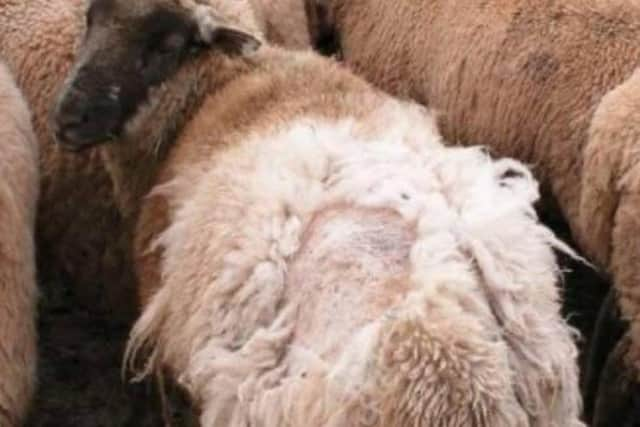AHWNI releases report on findings of NI Sheep Scab Research Project
and live on Freeview channel 276
The project, which was run by a project team comprising representatives of the NI Sheep Scab Group, the Moredun Institute, AFBI and AHWNI, aimed to assist in sheep scab control by working with sheep farmers in partnership with private vets, to identify the distribution of the disease across NI and within flocks, and to investigate barriers that impact progress in controlling scab.
Sheep scab is a highly contagious disease of sheep which has become a significant burden for the NI sheep industry in recent years.
Advertisement
Advertisement
The project engaged with 155 flock owners from across NI, of which approximately one-third were contacted due to a pilot study in one area of common grazing following detection of several positive cases.


Over 100 farmers went on to participate fully in the project.
Participants nominated a private vet, who was funded to undertake a farm visit to investigate whether sheep scab was likely to be present in their flock and provide advice.
Veterinary oversight of and advice on the use of prescribed OP dips and injectables was a feature of the initiative, with the cost of application of dip or treatment with injectables carried by the flock owner.
Advertisement
Advertisement
Sheep scab was detected in 70% of the self-nominating (suspicious) flocks and was detected in 28% of the pilot (non-suspicious) common grazing area flocks.
These results demonstrate that sheep scab is a substantially greater problem than previous notifiable disease reports would have suggested. All flocks in the common grazing area were offered sheep dip following the veterinary visit and blood sampling. Overall, dipping was the treatment of choice in 72 flocks; injectable Macrocyclic Lactones (MLs) were used in 16 positive flocks, however, five of these required subsequent dipping.
Feedback from the project indicated that 81% of respondents would be willing to coordinate the timing of scab treatments with their neighbours. Every respondent thought that a programme dedicated to the control of sheep scab in NI would be useful in the future.
Barriers to effective control identified by the project included the cost of treatment, time taken to gather, test and treat sheep, lack of awareness of the economic impact of the disease, lack of physical help on farms, convenience of ML use, concern over dip disposal requirements, lack of sheep dip safety course provision in NI, lengthy withdrawal periods, DAERA restrictions, infection on neighbouring farms, reluctance to report infection and a lack of enforcement action in markets and abattoirs.
Advertisement
Advertisement
The control of scab will improve animal health and welfare, reduce the need for treatments, reduce environmental and sustainability concerns, reduce farmer costs and decrease selection pressure for anthelmintic resistance.
The project demonstrated that infestation is amenable to control through a collaborative approach, thanks to the availability of diagnostic tools and effective treatments.